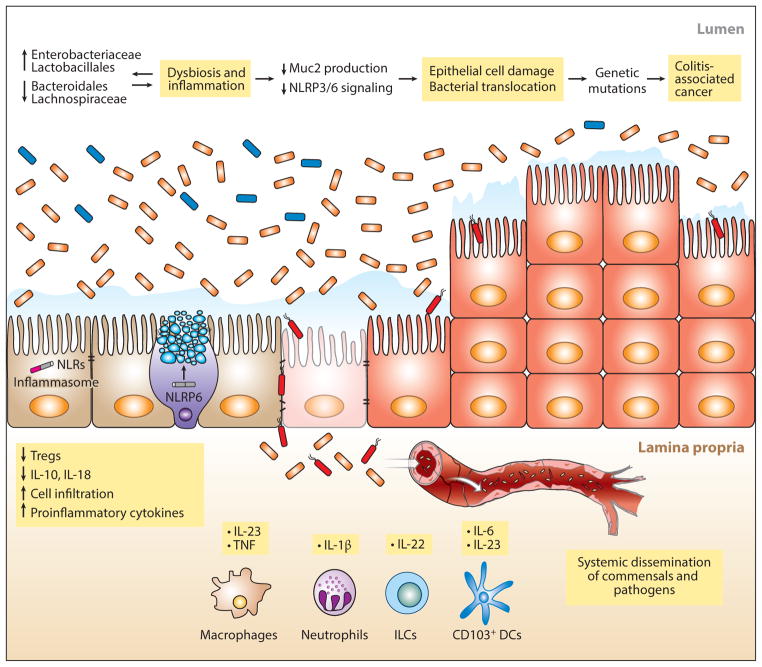Figure 2.
Inflammation, colitis, and cancer. Shifts in microbiota composition, in particular the expansion of γ-proteobacteria belonging to the Enterobacteriaceae family (orange), have been associated with colitis. These changes in bacterial composition are driven by factors such as infection, inflammation, antibiotic treatment, and deficiency of genes involved in the host-microbial response. Although specific bacteria that confer a colitogenic phenotype on normal hosts have been identified (188, 189), whether altered gut microbiota are the culprit behind colitis rather than a result of inflammation is still a matter of debate. Thinning of the mucous layer makes the intestine vulnerable to invasion by bacteria that may spread to other organs through the bloodstream. The continued presence of a colitogenic flora and production of proinflammatory cytokines plus alterations in the host genome perpetuate a state of inflammation that can eventually progress to cancer. Abbreviations: DC, dendritic cell; ILC, innate lymphoid cell; NLRP6, Nod-like receptor pyrin domain 6; Treg, T regulatory cell.

